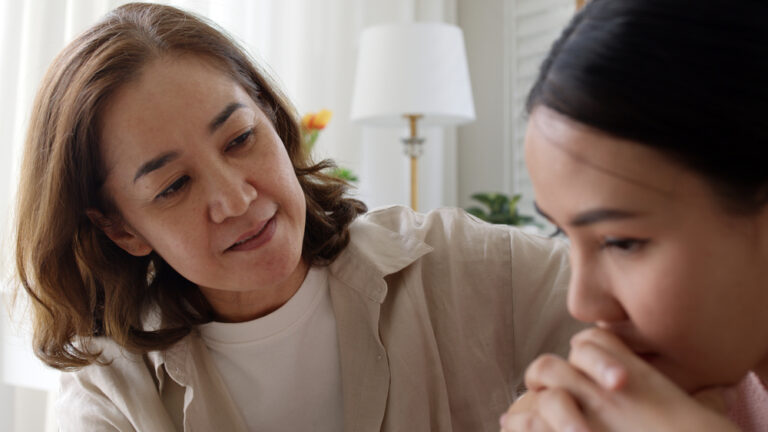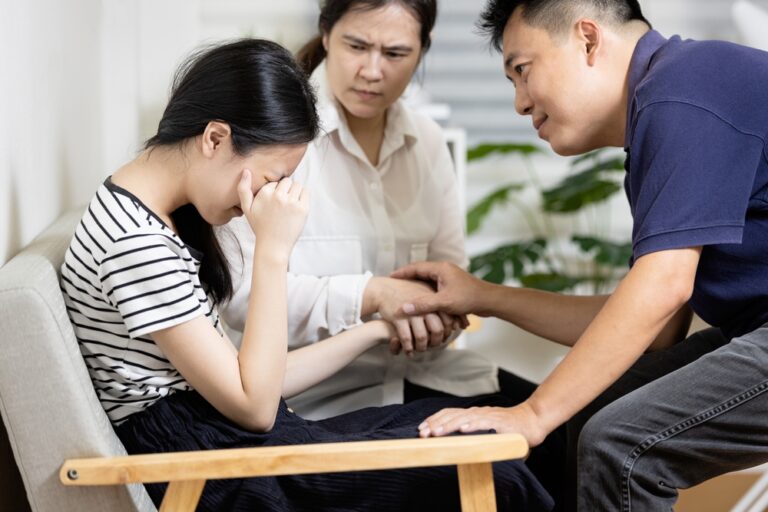
As children grow up, many parents may find that their children become increasingly resistant to having heart-to-heart talks. The children may feel awkward, or perhaps the family relationships have not been very close since childhood. Dr. Wong Chung Hin, a specialist in psychiatry, points out, “It is crucial for parents to establish a good parent-child relationship from an early age. If parents suspect emotional issues in their children, in addition to observing changes in their behavior, they can guide their children to express their thoughts and understand their inner world.”
As mentioned earlier, parents and children should establish a parent-child relationship from a young age, setting aside time each day for parent-child communication and engaging in interesting family activities together. Dr. Wong emphasizes, “A close parent-child relationship helps children express themselves to their parents. Even as they grow older, they will be more willing to express themselves and have trust in their family.”
However, if a child is unwilling to reveal their thoughts and parents notice changes in their behavior (refer to: https://www.parentsdaily.com.hk/expert/4073), Dr. Wong advises parents to patiently guide their children to express their inner feelings. “When children express their thoughts, parents should listen patiently and provide them with the opportunity to express themselves. Establish a daily parent-child chatting time, allowing children to have a channel to express themselves at home. Parents should remember that once children mention symptoms related to emotional issues, parents should not criticize or constantly deny their children.”

Dr. Wong continues, “Everyone has their own thoughts and perspectives, and parents are no exception. I once had a parent tell me that their child refused to go to school and do homework, and their emotions would spiral out of control every time they were urged to go to school. However, when the child stayed home to play video games, they seemed very happy, leading the parent to think the child was just lazy and ‘pretending.’ However, parents should carefully understand the reasons behind the child’s reluctance to go to school and not dismiss any emotional issues the child may have, to avoid missing crucial moments for addressing emotional problems.” If, after parental guidance, the child still refuses to discuss their situation, parents can contact the school to learn about the child’s situation at school.
Dr. Wong recalls a case involving a high school student: “This student suddenly called the clinic one day and asked if it was necessary for parents to accompany him. Later, the student came for a consultation with friends, revealing that he had a poor relationship with his family. After sharing with friends, they suggested seeking professional advice. During the treatment process, I slowly built a good doctor-patient relationship with him, gained his trust, and hoped to help rebuild his relationship with his family.” Dr. Wong laments that not every case receives family support, so the role of schools is crucial. When young people encounter emotional or stress-related issues and cannot confide in their families, they can seek assistance from trusted adults.
In light of the recent increase in suicide tragedies, Dr. Wong advises parents to understand that a child’s holistic development involves more than just academic achievements; it also includes mental health. Dr. Wong understands that a child’s stress often comes from academic and family expectations. “Whether students or parents, I hope everyone can equip themselves well in stressful environments. Equipping oneself does not necessarily mean extra tutoring but taking good care of one’s mental health and achieving balance in life. Parents and schools should also teach students about the importance of mental health and promote the holistic growth of students’ physical and mental well-being.”
Copyright © Lok Fu Rhenish Nursery. All Rights Reserved.